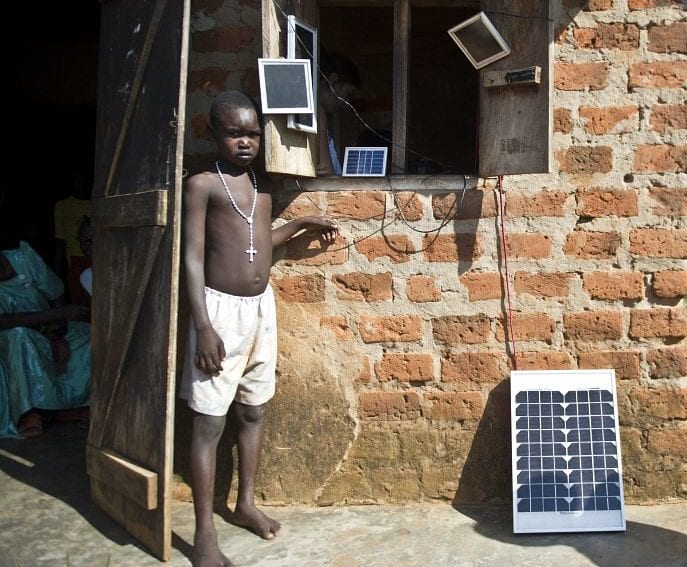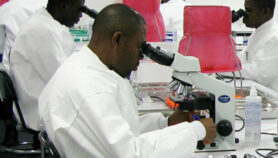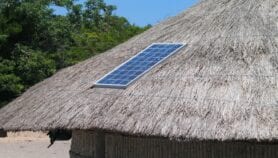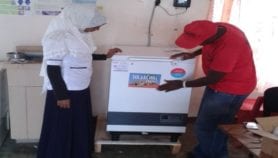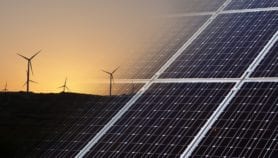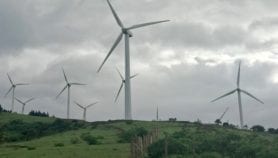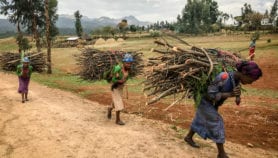By: Gilbert Nakweya
Send to a friend
The details you provide on this page will not be used to send unsolicited email, and will not be sold to a 3rd party. See privacy policy.
[NAIROBI] Strengthening South-South technology transfer and bridging the gap between policy and research could help Sub-Saharan Africa increase access to clean energy, a workshop has heard.
Experts at Accelerating Clean Energy Access in Africa held in Kenya early this month (9-10 July)said that Sub-Saharan Africa has a huge energy gap, but technologies and innovations exist to help addressthe challenge.
Cosmas Ochieng’, the executive director of Kenyan-based African Centre for Technology Studies (ACTS), said: “Most African countries may not achieve the Sustainable Development Goals without adequate access to clean energy.”
“We need to enhance South-South partnerships …to accelerate energy access.”
Janakaraj Murali, The Energy and Resource Institute (TERI)
He added that lack of access to clean energy could have been the reason why most Millennium Development Goalshave not been achieved across the continent.
The workshop was convened by ACTS and Horn of Africa Regional Environment Centre and Network (HoA-REC&N) in partnership with The Energy and Resource Institute (TERI) headquartered in India.
At the workshop, research scientists, policymakers and members of the private sector discussed the opportunities, benefits, and challenges of South-South technology transfer, drawing from TERI-ACTS-HoA-REC&N partnership.
The UK’s Department for International Development (DfID)sponsored the project which was launched in 2011 and piloted in Kenya and Ethiopia to scale up the use of clean cooking and energy solutions for poor households in Africa.
Araya Asfaw, the executive director HoA-REC&N,which has its headquarters in Ethiopia, said that the continent needs to share knowledge and lessons on successful technologies and piloted models for clean energy access. “We need transformational change to clean energy access that can bring about sustainability,” Asfaw noted.
Faith Adongo, a senior renewable energy officer from Kenya’s Ministry of Energy, called on scientists and researchers to engage governments more. She noted that governments are doing a lot that goes unnoticed and that could be some of the reasons why many innovations in the energy sector are untapped.
“We need to enhance South-South partnerships … to accelerate energy access,” said Janakaraj Murali, a senior research fellow working with TERI.
Murali explained toSciDev.Net that South-South technology transfer is less costly and gives countries the opportunity to share lessons on policy and technology in a similar context.
He revealed that the partnership has enhanced capacity building and has helped addressaffordability, and advanced adoption of clean energy technologies in Kenya and Ethiopia.
“Energy cuts across many sectors like public health and the environment,” Gitahi observed. “Universities must give leadership by creating centres of excellence in clean energy and entrepreneurship.”
He added that the continent needs education for sustainable development because universities can only promoteresearch and development after capacity building.
This article has been produced by SciDev.Net's Sub-Saharan Africadesk.
More on Energy
Multimedia
African innovator turns plastic waste into liquid fuel
Francis Kantavooro has produced a locally assembled reactor that turns plastic waste into16/12/19


